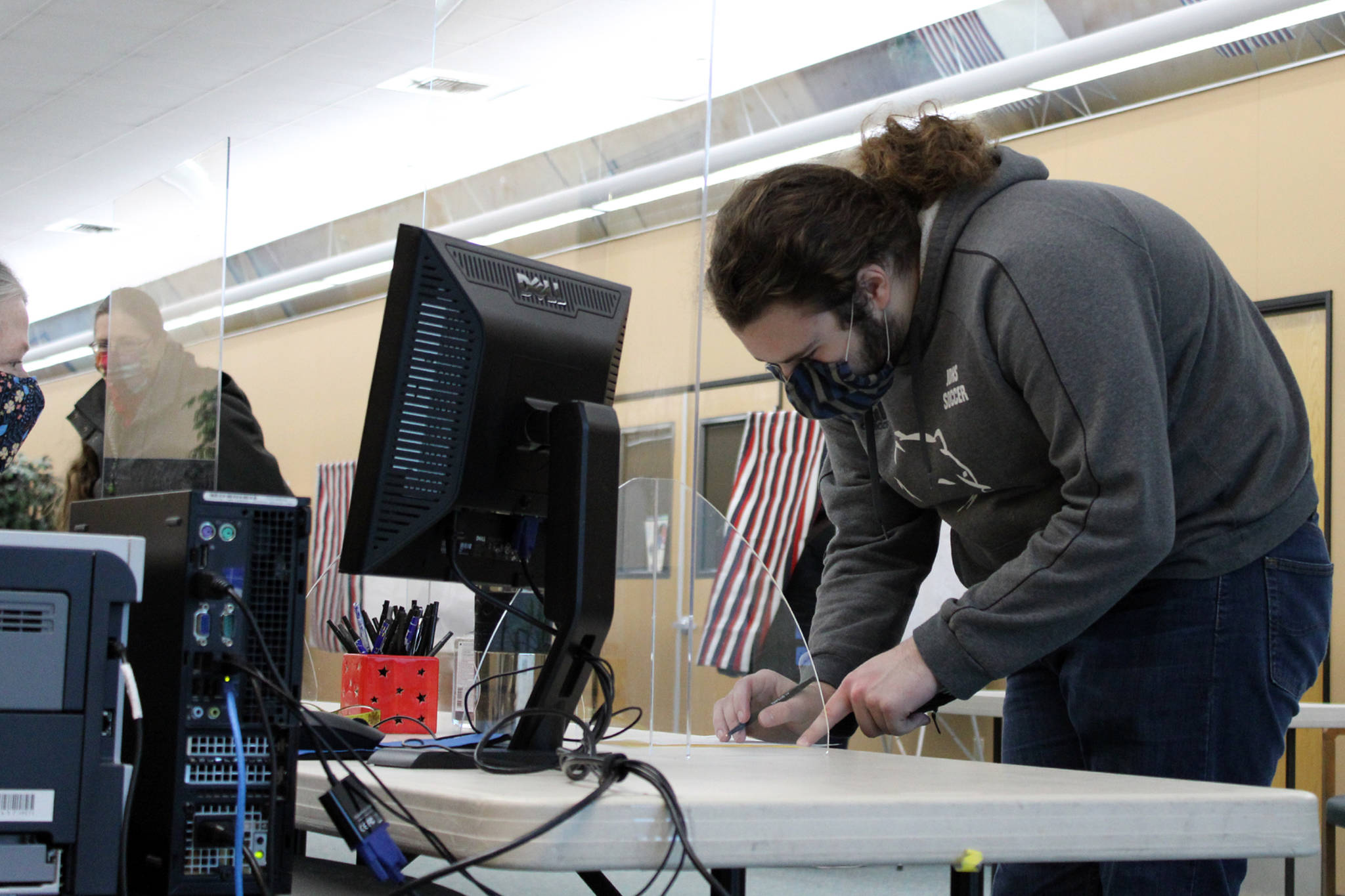This year’s election is going to be drastically different from past years, and the Alaska Division of Elections is making a strong push to manage voter expectations leading up to and after Election Day.
Because of the COVID-19 pandemic and the large number of mail-in ballots already delivered to the state, DOE wants the public to be aware results may change after Election Day as the vote-counting process is expected to take longer than normal.
Results may change
“Unofficial results will not be called until well after Election Day, due to the high volume of absentee ballots,” said Tiffany Montemayor, public relations manager for DOE, which is overseen by the lieutenant governor’s office. “There is a very high chance that results will begin to change once we start counting absentee ballots seven days after Election Day. It is estimated that it will take weeks in many states. Our target date for Election Certification is Nov. 25, and we will work night and day every day if needed so that we can make that happen.”
Early voting ballots cast through Oct. 29 will be counted on Election Night, according to DOE. All remaining early voting ballots that were cast on or after Oct. 30 will be counted post-Election Day on a schedule determined by the division director based upon the completion of voter history from those who voted at the polls on Nov. 3, according to a DOE information packet.
Absentee ballots will be counted on a similar schedule, one determined by a division director based on voter history from those who voted at the polls on Election Day. Information will be provided as soon as it is practicable on the division’s website, DOE said.
“Managing the public’s expectations of results is a top priority for the Division of Elections,” Montemayor said in an email. “There are TV ads and many social media posts and engagements that remind voters (results may change). We include it in every media inquiry or interview we do. We asked media to do the same.”
Rely only on trusted sources for information on results
DOE is also issuing statements urging Alaskans to rely only on authoritative sources such as the division itself or trusted news agencies for results. DOE’s media guidance for the 2020 general elections uses the hashtag #trustedinfo2020, a campaign launched by the National Association of Secretaries of State that gives guidance from the National Task Force on Election Crises, a recently formed election watchdog group of lawyers, academics and advocacy groups.
“#TrustedInfo2020 aims to highlight state and local election officials as the credible, verified sources for election information,” NASS’ website says.
Misinformation, disinformation is at an all-time high, DOE said in its media packet “and anxiety is not far behind.” State law allows ballots to be received up to 15 days after Election Day and DOE asks media to “help the public understand that the lack of immediate results does not indicate wrongdoing or other problems with election integrity.”
DOE has a “close race” policy that says that every absentee and questioned ballot will receive a thorough review to determine its eligibility.
“Every eligible vote will be counted regardless of when or how it was cast. The election will not and cannot be called early or even the day after the election,” Montemayor said. “Current statistics show that around 25% of ballots cast in this election will be absentee (mail, in-person, online or fax delivery). Which means 25% of votes will not be counted until 7 days after the election. That 25% will change the results of many races — even the races where someone who is not an Elections Official, calls on Election Night.”
All election results reported by the Juneau Empire and the Peninsula Clarion will come from DOE and the Associated Press.
Long lines and COVID-19 protections
With health mitigation strategies in place, Alaskans should be prepared for longer lines and wait times on Election Day than in past years. Social distancing and other mitigating measures may mean fewer polling stations and fewer poll workers, which could mean longer wait times.
Poll workers will be wearing personal protective equipment and voters are asked to do the same, in addition to following any health mandates local authorities may have in place. In Juneau, residents are required to wear a mask while indoors in public settings, including polling places.
To accommodate for social distancing, some voters may be asked to wait in line outside if the polling place is too small to keep 6 feet between each person. PPE and other personal hygiene items like hand sanitizer will be available to voters at polling places, DOE says, and poll workers will disinfect polling areas and equipment following each use.
So far there have been no changes to the state’s election protocol, DOE says, but the division is actively monitoring the COVID-19 situation in Alaska and will respond accordingly should the Centers for Disease Control and Prevention, the Alaska Department of Health and Social Services and the Office of the Lieutenant Governor decide changes are necessary.
“Voters should only rely on information that comes from the Alaska Division of Elections and the Office of the Lieutenant Governor,” DOE says. “All updates will be posted on the DOE website, DOE official social media pages, and local media (newspapers, news, and radio).”

